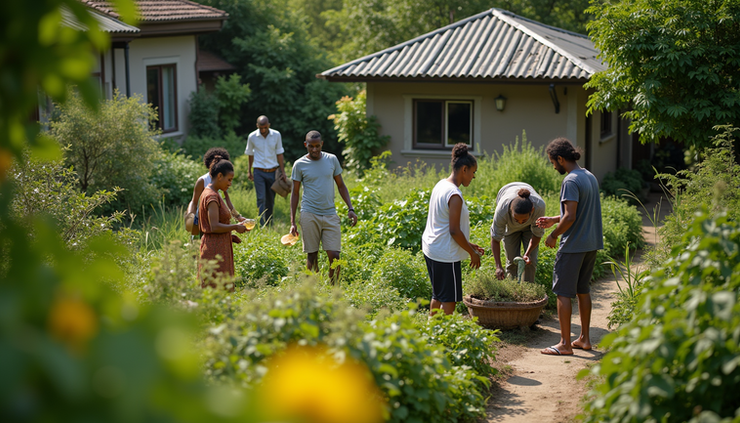The True Cost of Living on Earth: Unpacking the Paid to Live System and Its Impact on Humanity
- Admin

- Nov 17, 2025
- 3 min read
Why do human beings pay to live on a planet they were born on? Unlike animals and plants that exist freely, humans have created a system where living requires constant payment. This blog explores how this paid-to-live society came into existence, the consequences it has on human life, and what the world might look like if we lived without this burden. It also questions who decided land could be owned and what that means for our true nature and growth.

The Origins of Paying to Live on Earth
The idea that land and resources could be owned is relatively recent in human history. For most of our existence, humans lived in small, nomadic groups or tribes that shared land and resources communally. The concept of private property began to take shape with the rise of agriculture around 10,000 years ago. As people settled and cultivated land, they started to claim ownership over specific plots.
The first formal systems of land ownership appeared with early civilizations like Mesopotamia and Ancient Egypt. Kings and rulers claimed vast territories, often backed by force or religious authority. This power structure created a hierarchy where common people had to pay taxes or rents to those who controlled the land. Over centuries, this evolved into the complex property laws and economic systems we have today.
The notion of owning land is not a natural law but a social construct. No one was given the right by nature or any divine authority to claim exclusive ownership of what was once shared by all living beings. Instead, it was a tool used by those in power to control resources and people.
The Evils of Living in a Paid-to-Live System
Living in a system where survival depends on money creates many problems:
Inequality: Access to land and resources is uneven, leading to poverty and homelessness for many.
Stress and anxiety: Constant worry about paying rent, bills, and debts affects mental health.
Disconnection from nature: When land is a commodity, people lose their relationship with the earth and its cycles.
Environmental harm: Profit motives often lead to overexploitation and destruction of natural habitats.
Social division: Ownership creates barriers between communities and breeds competition instead of cooperation.
This system forces people to work jobs they may dislike just to afford basic shelter and food. It limits freedom and creativity, trapping many in cycles of debt and dependence. The pressure to earn money overshadows the human need for connection, rest, and spiritual growth.
How Life Could Be Without Paying to Live
Imagine a world where land and resources were shared freely, as they were for most of human history. In such a world:
Communities would manage resources collectively, ensuring everyone’s needs are met.
People could focus on personal growth, creativity, and relationships instead of survival.
Environmental stewardship would be a priority, as people would feel connected to the land.
Social bonds would strengthen, reducing crime and conflict.
Mental and physical health would improve without the constant stress of financial survival.
This vision is not just idealistic. Some indigenous cultures still live with communal land ownership and sustainable practices. Their way of life shows that humans can thrive without paying to live.

The True Nature of Humanity and the Disruption of Ownership
Humans evolved as social beings who depend on cooperation and sharing. Our brains and bodies are wired for connection, empathy, and mutual support. The paid-to-live system disrupts this natural state by encouraging competition, isolation, and mistrust.
This disruption affects us on multiple levels:
Mind: Constant financial pressure reduces cognitive capacity and creativity.
Body: Stress-related illnesses increase under economic strain.
Spirit: A sense of purpose and belonging diminishes when survival dominates life.
The system also distorts values, making material wealth the primary goal rather than well-being or community. This shift leads to alienation and a loss of meaning for many people.
Will This System Ever End?
The paid-to-live system is deeply embedded in global economies and cultures. Changing it requires rethinking ownership, wealth, and human rights. Movements advocating for universal basic income, land reform, and cooperative living offer glimpses of alternatives.
Whether this system ends depends on collective awareness and action. People must question the legitimacy of land ownership and demand fairer ways to share resources. Technology and social innovation can help create new models that prioritize human and ecological health.
The future is uncertain, but the growing dissatisfaction with the current system shows a desire for change. Recognizing the true cost of paying to live is the first step toward imagining a world where everyone can live freely on the planet they call home.


Sengbe Ben Yosef






Comments